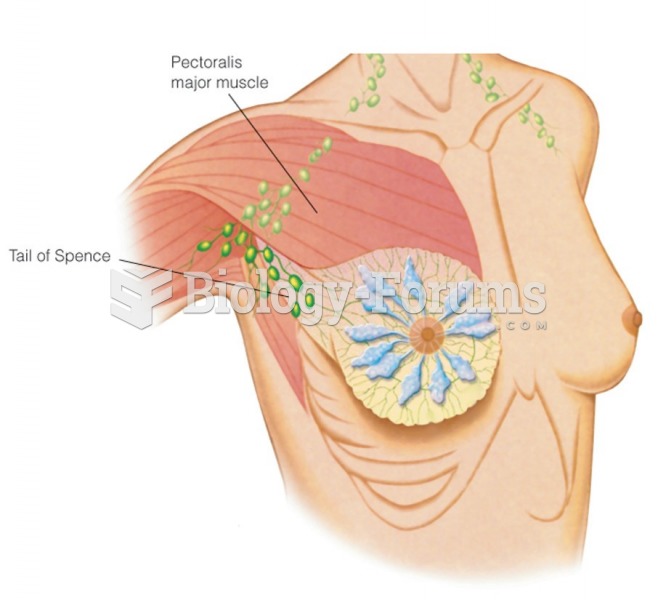|
|
|
The average adult has about 21 square feet of skin.
The average human gut is home to perhaps 500 to 1,000 different species of bacteria.
The Romans did not use numerals to indicate fractions but instead used words to indicate parts of a whole.
Vital signs (blood pressure, temperature, pulse rate, respiration rate) should be taken before any drug administration. Patients should be informed not to use tobacco or caffeine at least 30 minutes before their appointment.
Anesthesia awareness is a potentially disturbing adverse effect wherein patients who have been paralyzed with muscle relaxants may awaken. They may be aware of their surroundings but unable to communicate or move. Neurologic monitoring equipment that helps to more closely check the patient's anesthesia stages is now available to avoid the occurrence of anesthesia awareness.







